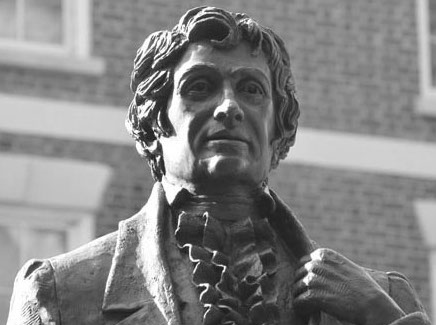Abraham Baldwin was born on the 22nd of November 1754; the second son of a blacksmith who fathered 12 children by 2 wives. Besides Abraham, several of the family attained distinction. His sister Ruth married the poet and diplomat Joel Barlow, and his half-brother Henry attained the position of justice of the U.S. Supreme Court.
He was a famous politician in America and the first president of the University of Georgia. Baldwin was a Georgia representative in the Continental Congress and served in the United States House of Representatives and Senate after the adoption of the Constitution.
Baldwin became very active in the legislature of Georgia, able to mediate between the rougher frontiersman because of his childhood as the son of a blacksmith and the aristocratic planter elite which farmed the coast.
Baldwin assumed custody of six of his younger half-siblings upon his father’s death and reared, housed, and educated them all at his own expense. He graduated in 1772 from Yale. Three years later, he became a minister and tutor at the college.
He held that position until 1779, when he served as a chaplain in the Continental Army. Two years later, he declined an offer from his alma mater of a professorship of divinity.
Instead of resuming his ministerial or educational duties after the war, he turned to the study of law and in 1783 gained admittance to the bar at Fairfield, CT.
He was appointed as chaplain in Brigadier General Samuel H. Parsons’ brigade, remaining with the unit until the general demobilization of the Army that followed the announcement of the preliminary treaty of peace in June 1783.
The duties of a Revolutionary War chaplain were quite extensive, varying considerably from the modern concept of a clergyman’s military role. In addition to caring for the spiritual needs of the 1,500 or so soldiers of differing denominations in the brigade, Baldwin assumed a major responsibility for maintaining the morale of the men and for guarding their physical welfare.
He was also assigned certain educational duties, serving as a political adviser to the brigade commander and subordinate regimental commanders.

He was then elected to the U.S. Congress, where he served for 18 years. During these years, he became a bitter opponent of Hamiltonian policies and, unlike most other native New Englanders, an ally of Madison and Jefferson and the Democratic-Republicans.
By 1790 Baldwin had taken up residence in Augusta. Beginning in the preceding decade, he had begun efforts to advance the educational system in Georgia.
Appointed with six others in 1784 to oversee the founding of a state college, he saw his dream come true in 1798 when Franklin College was founded. Modelled after Yale, it became the nucleus of the University of Georgia.
He is remembered today in Georgia primarily for his state-wide educational program that created a state university and provided state funds for that institution.
Highlighting his own education principles, Baldwin once stated that Georgia must “place the youth under the forming hand of Society, that by instruction they may be moulded to the love of Virtue and good Order.” He believed that no republic was secure without a well-informed constituency.
On March 4, 1807, at age fifty-three, Baldwin died while serving as a U.S. senator from Georgia, he never got married.